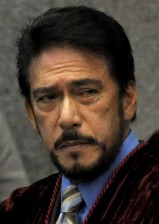Lawmakers are split on whether the Department of the Interior and Local Government (DILG) should be divided into two amid persistent concerns that its political and security scope is too big to be handled by one person.
Senate Majority Leader Vicente Sotto III said the proposal to break up the DILG has merit considering that both security and political concerns required full-time secretaries.
“It’s worth studying. If the bureaucracy will not double, I will agree,” Sotto said in a text message.
Senator Gregorio Honasan II said proposals to divide the DILG had been floating since he first became senator in 1995.
“I agree that it is too much to ask one person to excel in both the security and political aspects of the DILG. But I think dividing it into two departments is easier said than done because it might involve changing the Constitution. Perhaps a transition phase of having a powerful undersecretary is preferable,” Honasan said.
Instead of appointing another secretary, Honasan proposed that the interior secretary give up the National Police Commission (Napolcom) to an undersecretary, preferably with experience in security matters.
“It’s no mean feat to take charge of a 140,000-strong police force,” he said.
Honasan, however, stressed that he believed outgoing Transportation Secretary Manuel Roxas would “excel” as the new DILG chief, especially if he continued the nonpartisan ways of his predecessor, the late Jesse Robredo, in dealing with both allies and rivals in local government.
Senator Franklin Drilon said adding another undersecretary to the current two in the DILG was a better alternative.
“Instead of splitting, we should strengthen DILG as a department. Right now, it has only general supervision over LGUs and control over PNP is with Napolcom. The DILG only has two undersecretaries, one for local governance and the other for peace and order. It has none for finance and administration, which includes procurement, legal services and human resource development,” Drilon said.
“I may even argue for a fourth usec: to deal with the informal sector and their settlement needs, which is a growing reality in every city,” he said.
